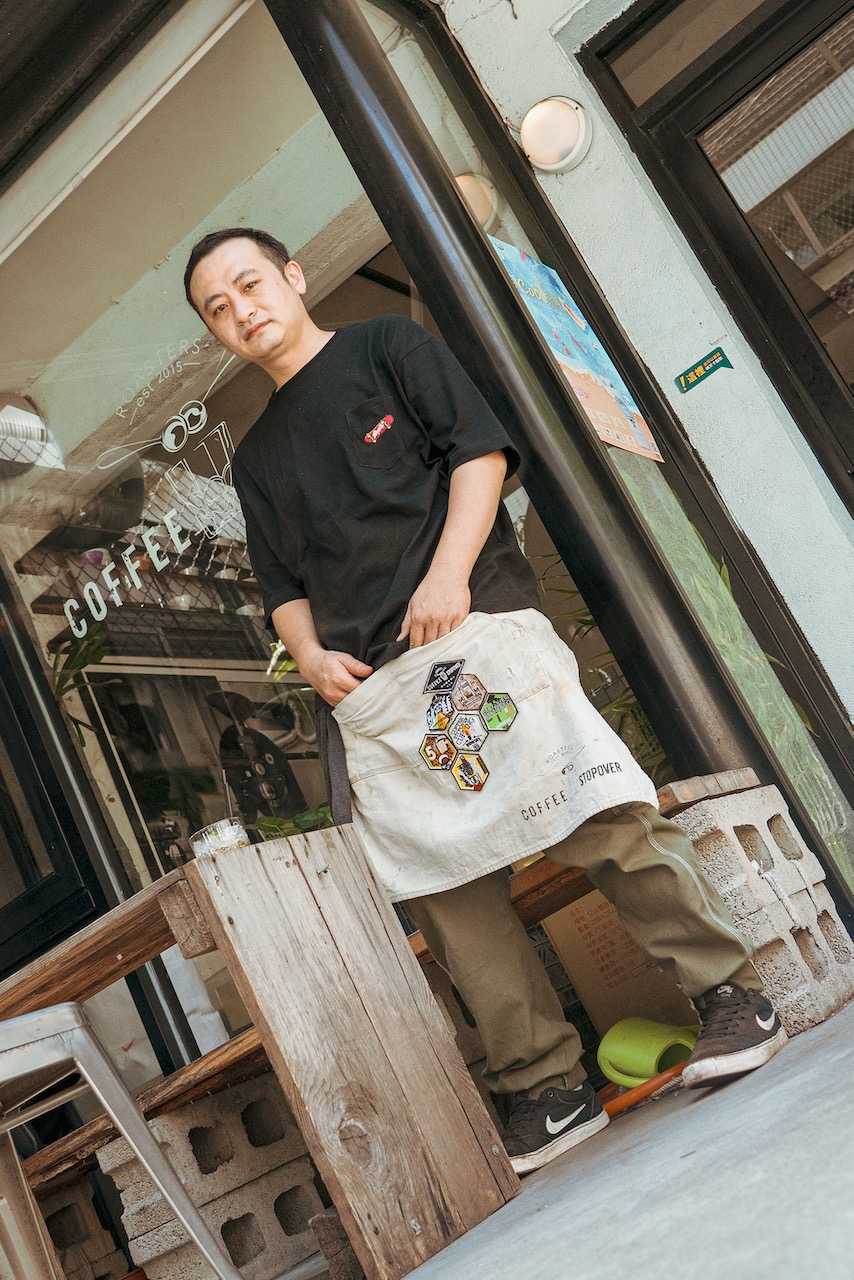
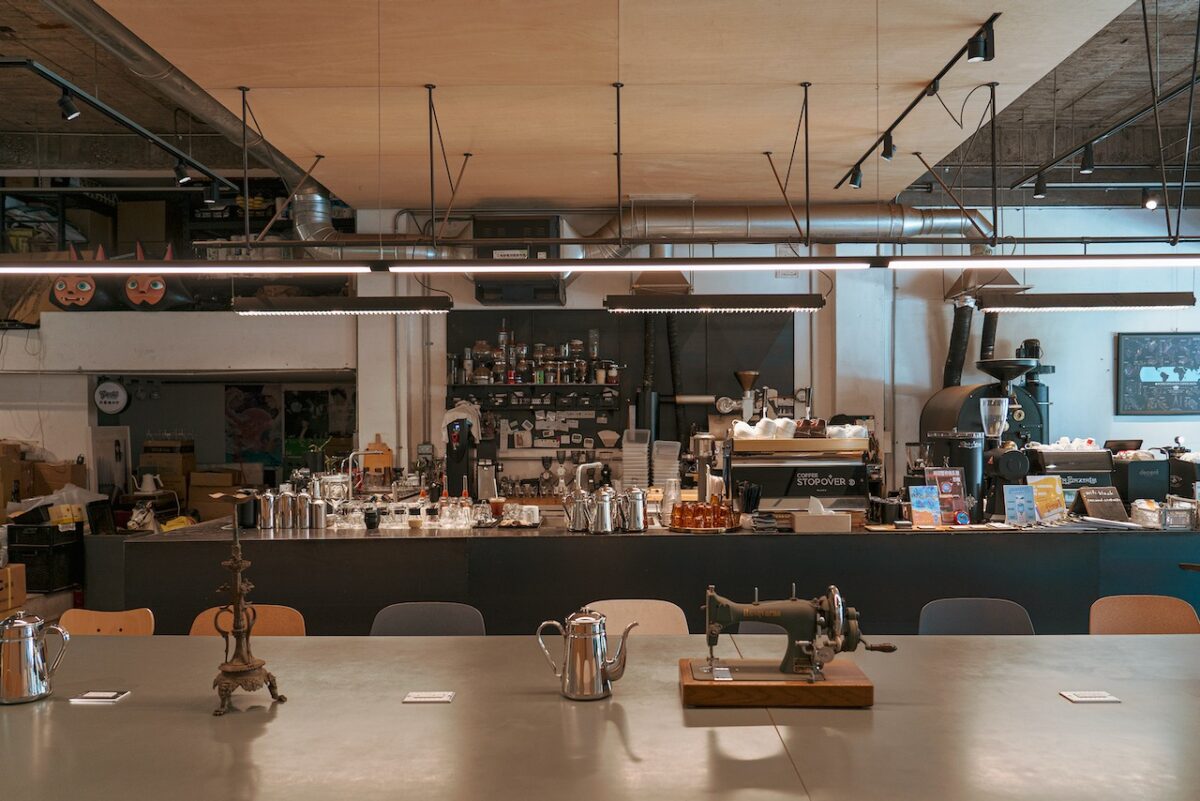
Taichung is known as a livable city thanks to its benign weather and many parks rich with greenery. Coffee Stopover runs 3 cafes in the Taiwanese city. Its name reflects a wish to create a space where people stop to recharge themselves for a fresh start as if during a stopover in between air travel.
Stanley Zhang, a native of Taichung who founded Stopover in 2015, delved deep into the world of coffee after he was fascinated by latte art. He has also taught at a coffee academy for 4 years. How did he end up deciding to open his own shop? What is it that he wants to achieve through Stopover? We spoke to Stanley to find out.
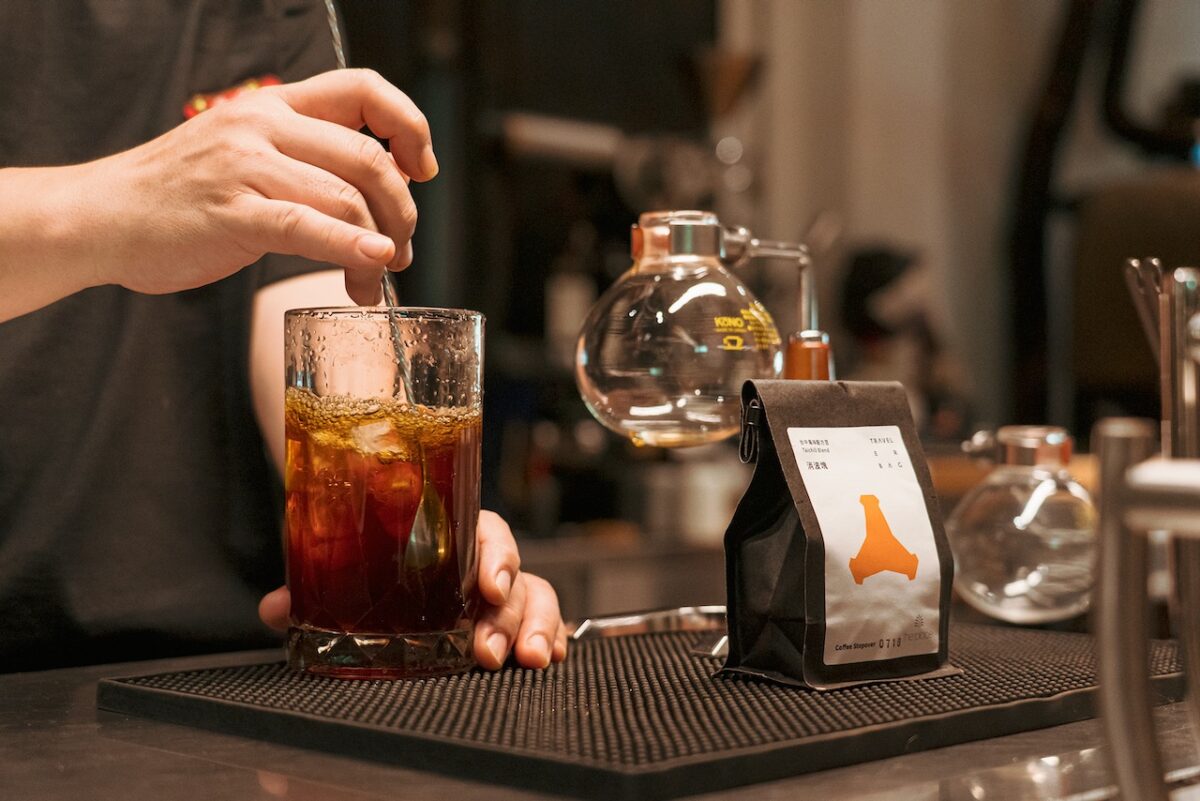
Shining light on uniqueness
When you run multiple restaurants, the number one rule is consistency, or so it is believed. Be it menus, operations, exteriors or interiors, there has to be consistency between establishments to streamline overall management and promote a uniform brand value. But Stopover is an outlier in that regard. Even if you saw its three shops in a row, you wouldn’t realize they belong to the same brand. And that’s exactly Stanley’s intention.
“I wanted to make sure that customers get different sensations when they visit different shops,” Stanley explains, “rather than cookie-cutter outlets selling the same products in the same method. Plus, it would be impossible to take what I have learned in all these years of working in the coffee industry and express it with a single shop.”
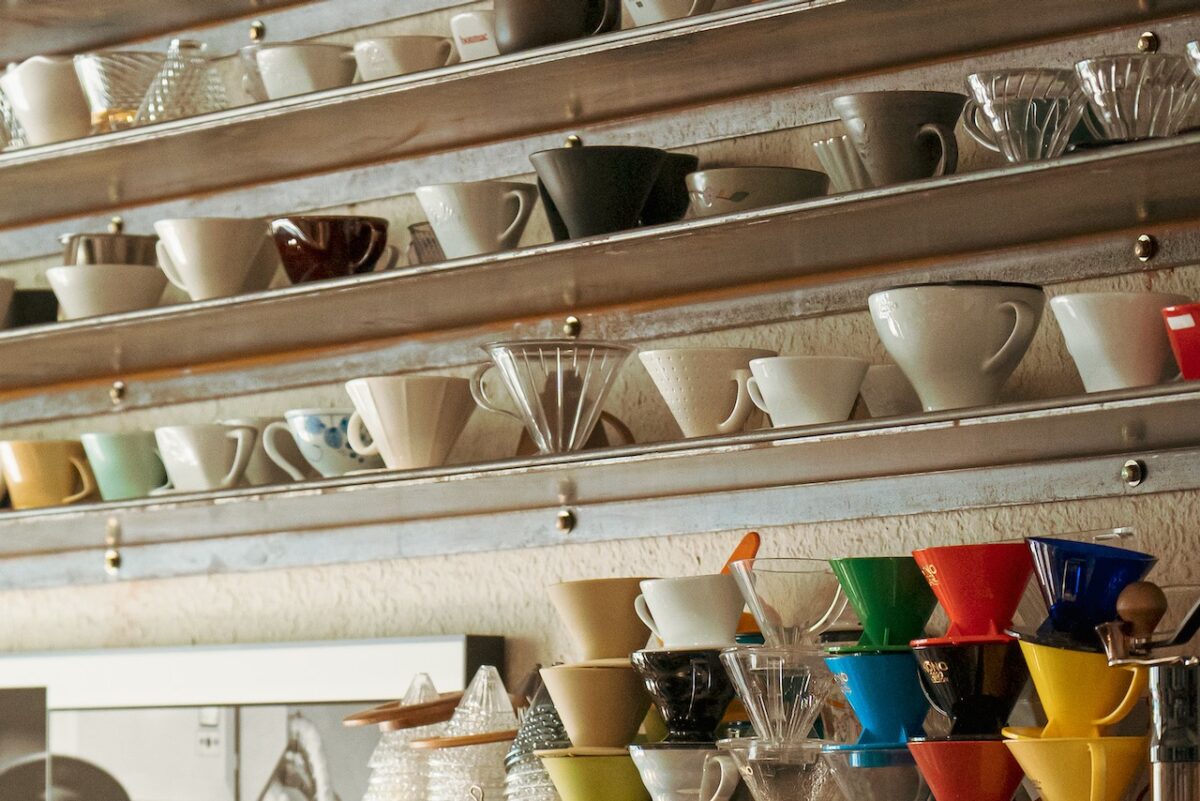
Stopover’s emphasis on uniqueness spills over into the equipment it uses and the coffees it serves. Its first shop uses filter coffee and espresso machines to offer coffee with bright flavors. The second location uses lever-operated Astoria espresso machines and siphons to brew coffee with less vibrancy yet heavier body. Then there is the third store, which serves funnel drip coffee in a building with a historic charm. In each of the three places, visitors can enjoy a different experience.
“I want people to choose which place to go to just as they pick which ramen restaurants to go to. I don’t plan to prioritize one over another. Siphon coffee has its own appeal in much the same way funnel drip has a beauty entirely of its own.”

In addition to coffee, Stopover offers 8 kinds of tea-coffee, an original lineup of mixed drinks made with Taiwanese tea and coffee. To make them, baristas grind coffee beans and tea leaves and extract them with an espresso machine. The result is a drink with lasting coffee flavors and a hint of tea’s aroma.
One of Stopover’s main draws is a diverse offering of coffee-themed desserts. These include a shaved ice sweet dubbed “Savory Caramel Macchiato” as well as coffee tofa jelly, a mixture of soy milk and coffee. Stanley is on the constant lookout for inspirations for new products, “trying out whatever might go well with coffee” in his day-to-day life.
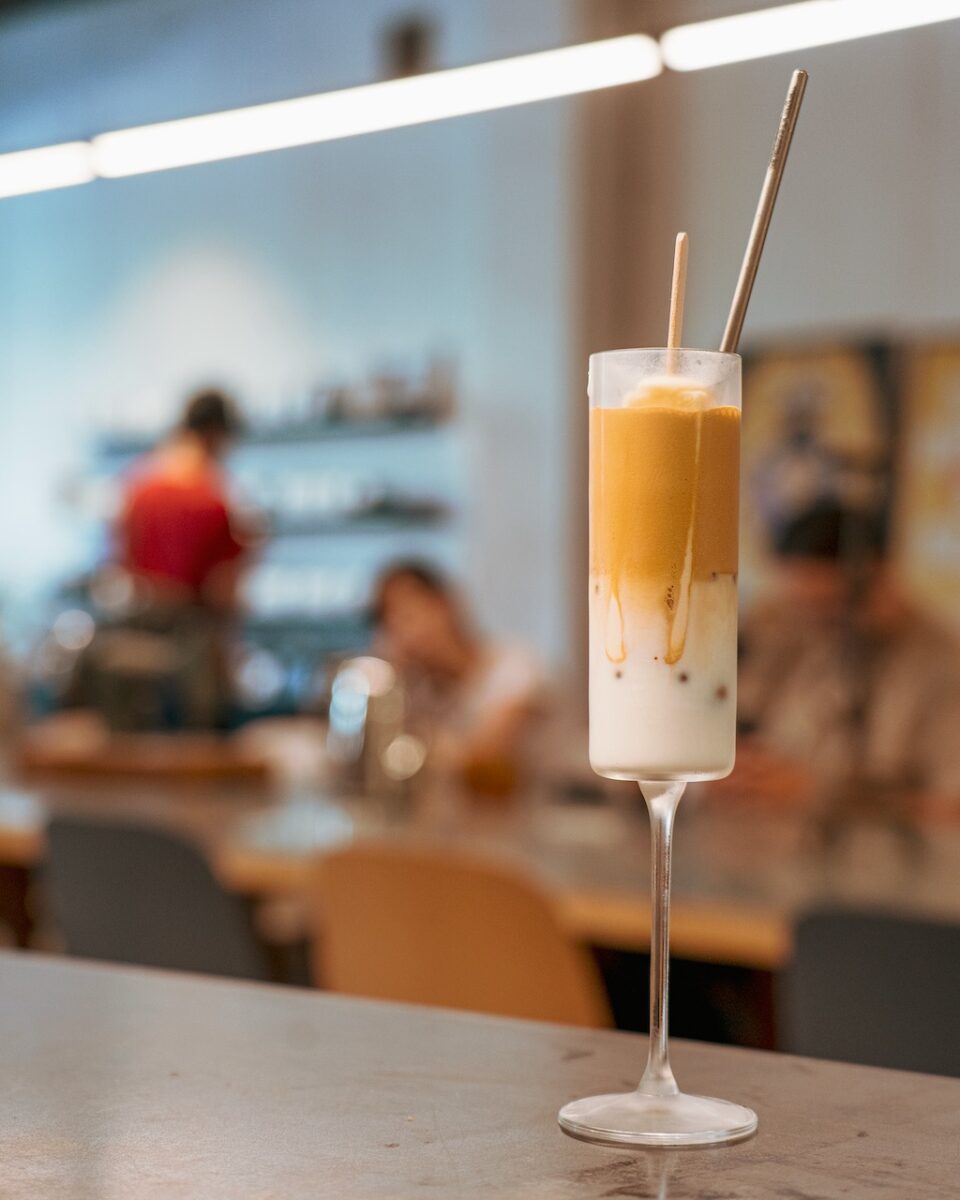
The Stopover of today, however, is a far cry from what it was at the start, when only coffee was on the menu. And this is in an industry where offering sweets and sandwiches is the norm. Naturally, people advised Stanley to sell sweets, too. But when they did, he responded with unwavering determination.
Finding out there were no sweets on the menu, “Some visitors left with a disappointed look without ordering anything,” Stanley says. “But I didn’t care too much because many others come for coffee. Besides, we allow visitors to bring their own food and eat it at our shops. I’ve become friends with some customers. And they bring me various sweets. When I have time, I eat them together with customers, too.
From early on, I’ve always wanted to make Stopover a kind of place where people can drop in as casually as they visit their friends’ places. My ideal is the famous Los Angeles-based Intelligentsia. I want to grow my shops into places with deep roots in their neighborhoods. So I will aim to cultivate Stopover while maintaining close ties with locals. But at the same time, I hope we will be recognized as one of Taiwan’s most famous coffee shops by people abroad.”

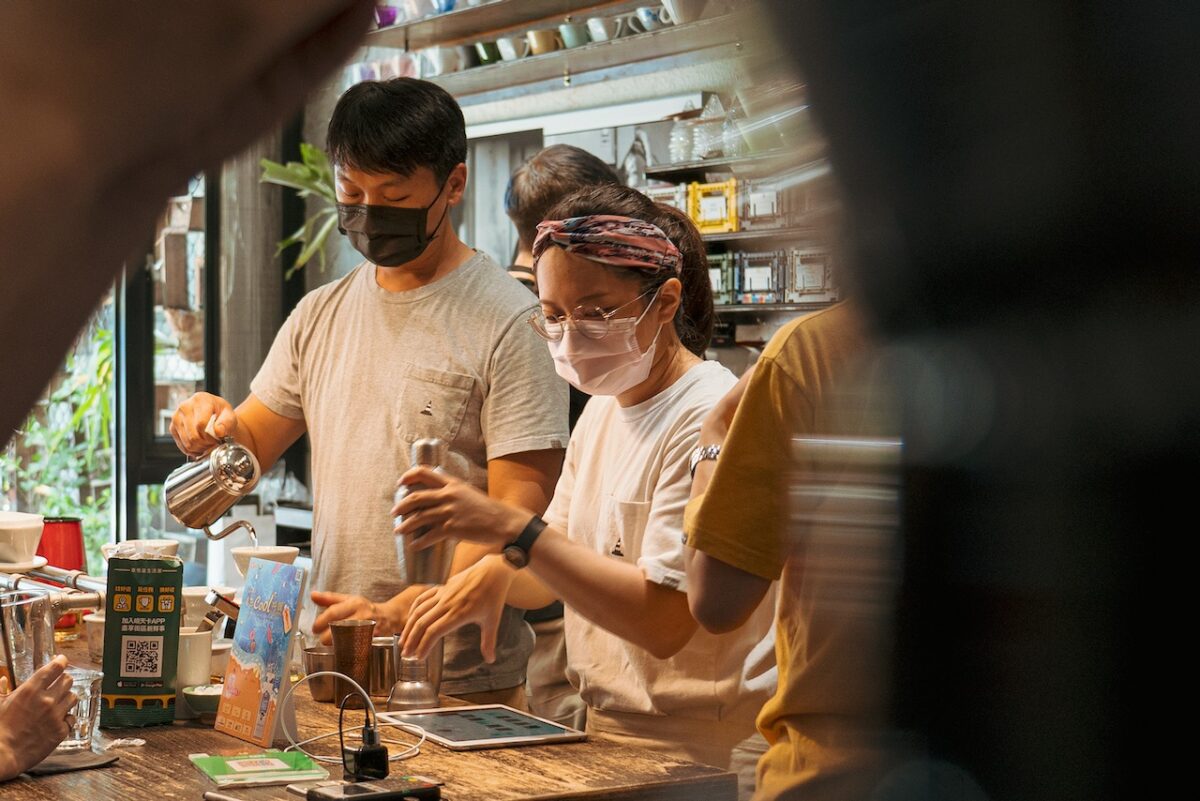
Making jobs worth working
Stanley, who sees cafes as small societies unto themselves, hires people of diverse walks of life at his shops. Applicants have different reasons they want to work at Stopover: Some aspire to compete in contests, and others dream about opening their own stores. And there are those who just want to learn about coffee. The one consistent principle, when Stanley recruits people, is whether they are serious about studying coffee.
As of 2022, all 18 employees are on regular contracts. Stopover has no part time positions because it looks for someone who can grow together with the company. The reasoning goes that part-timers can pick and choose how many days or what time they want to work and call it quits when they want to.
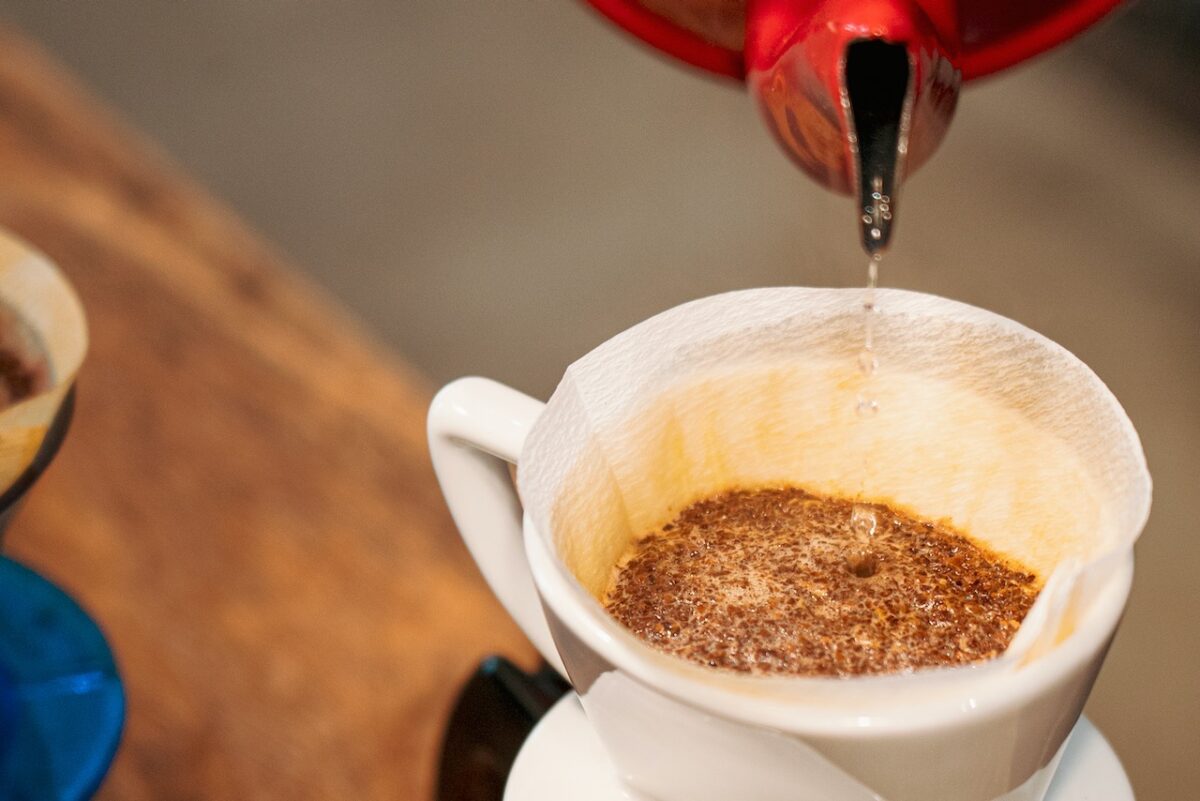
Stopover demands professionalism from its ranks. New hires are required to take cupping and brewing tests. The cupping test examines whether fresh hires have the skills to analyze various tastes, such as acidity, sweetness and bitterness. In the brewing test, rookie members try discerning subtle differences in tastes that occur depending on a coffee’s thickness and the brewing time.
“If you fail the tests, you start as a floor staff member who does things like serving customers and selecting and packaging roasted beans. It’s grunt work, but you can’t cut corners. The job is one of coffee-related work, and gives you vital lessons if you want to make a living from coffee.”
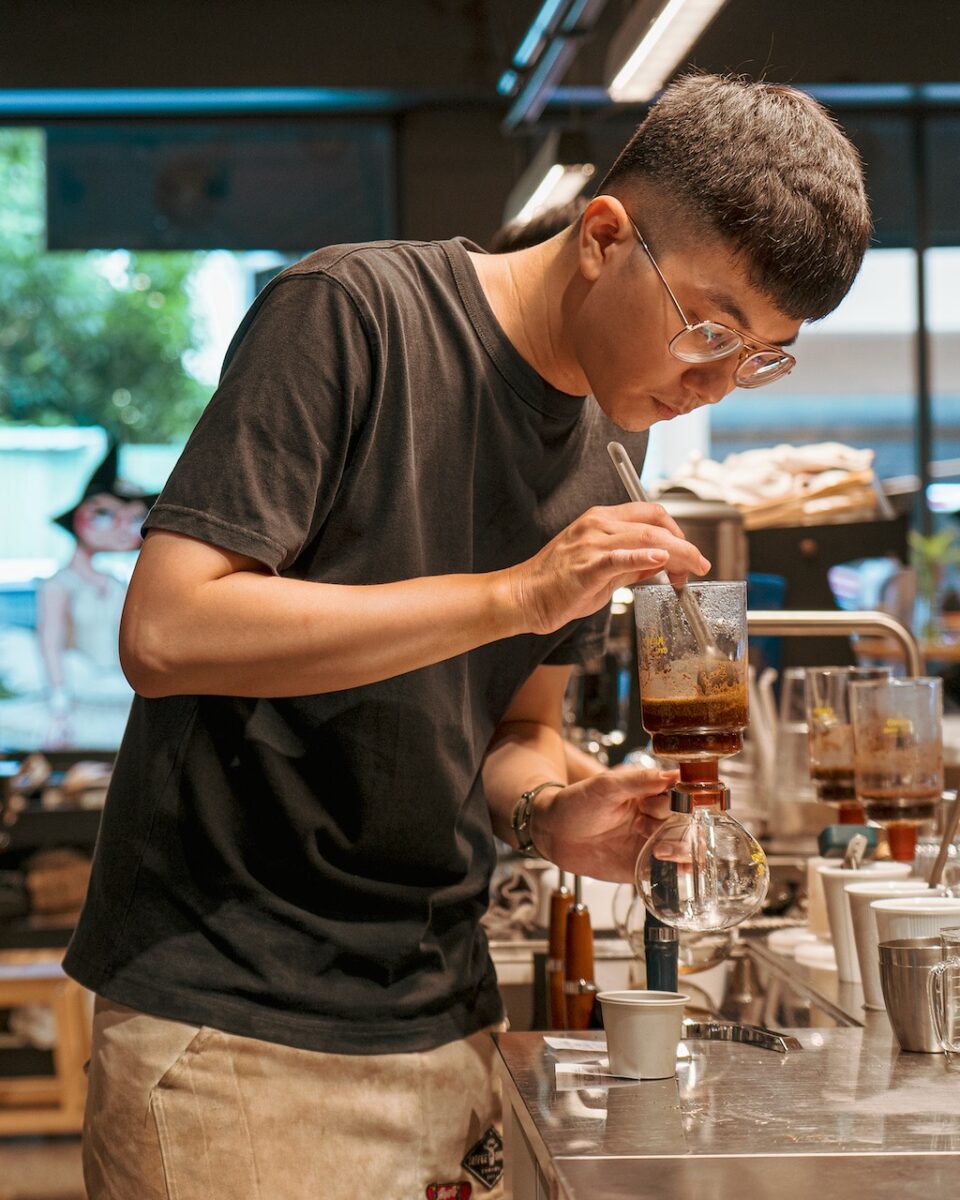
The two tests aren’t the only exams at Stopover. Employees must pass various tests to move on to the next step. The tests are divided further into more detailed subjects like espresso and siphon. Results determine which store employees are assigned to. In other words, your skills take you up the ladder at Stopover.
Stopover also works to improve staff’s skills and raise their motivation. One of such initiatives is an annual trip to a coffee origin in Taiwan. All staff members take part in this event, which will mark its 3rd in 2022. During the tour, staff members split into multiple teams. Each team picks a processing method and processes coffee accordingly at a farm. The team with the most delicious coffee wins. Members of the winning team are awarded a bonus.
“Imagine you are explaining a processing method to customers. If you just recite some knowledge you read in a book, nothing you say won’t really get through to them. But when you see coffee farms yourself and have firsthand experience, then your words carry more weight. That will also improve our brand image and skills as experts.”
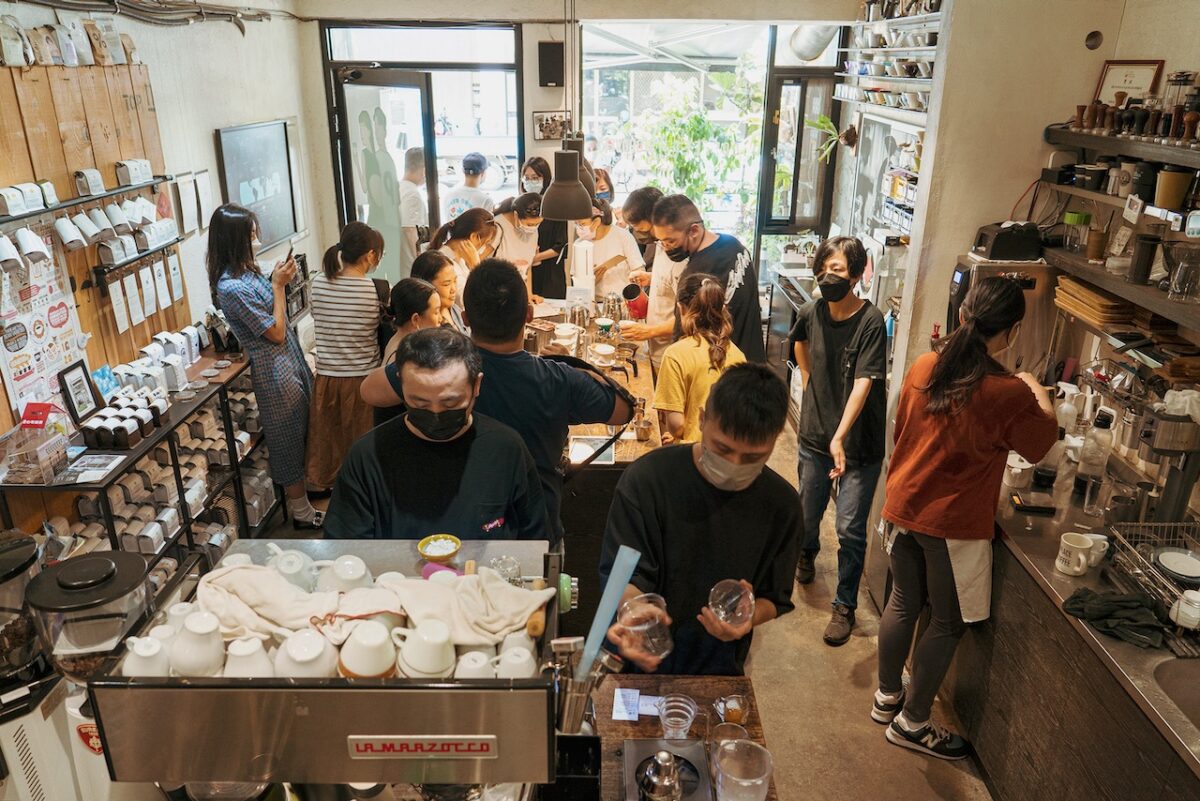
Meanwhile, Stopover is closed on Sunday, which, for other cafes, is supposed to be the busiest day of the week. This is because Stopover places equal importance on a healthy work-life balance.
“Things get really hectic on Saturday. If we decided to open on Sunday, everyone would be too wiped out to brew delicious coffee,” Stanley laughs. “So part of the reason is to maintain the quality of our work. But I also want to challenge the food service industry’s notorious standard where workers don’t get enough days off.
I want my staff to enjoy their days off like regular company employees do. When I visited Australia, I saw many cafes that close their doors in the evening and take weekends off.”

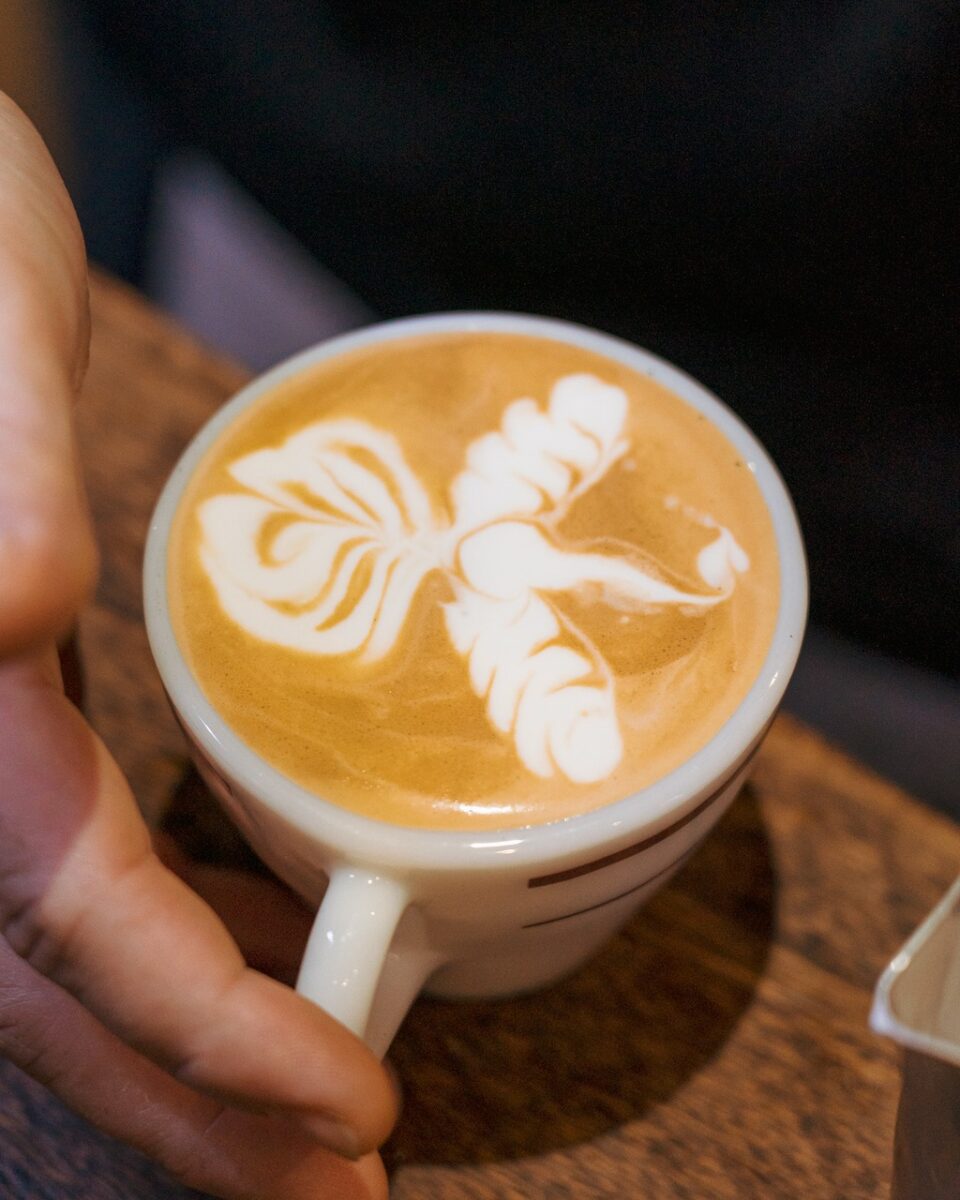
Seeing world anew through teaching
Stanley was 18 years old and right out of high school when he started to immerse himself in the world of coffee. He worked at a cafe run by his high school senior. And what initially drew him into coffee was latte art. That was in 2004. No one in his circle was interested in latte art, which made it all the more special.
“I had no hesitation to pass up a university offer and work at a cafe. I was very excited because that was the first time I chose my own path. My mother may have been disappointed. But up until then, I’d lived with my parents all my life under their overprotection. I had a strong urge to go out into the outside world.”
A few years later, Stanley followed his father’s recommendation and decided to go to university. But that didn’t stop him from working just as many, if not more, hours at the cafe. He enrolled in an evening program while working double shifts at separate cafes in the morning and afternoon.
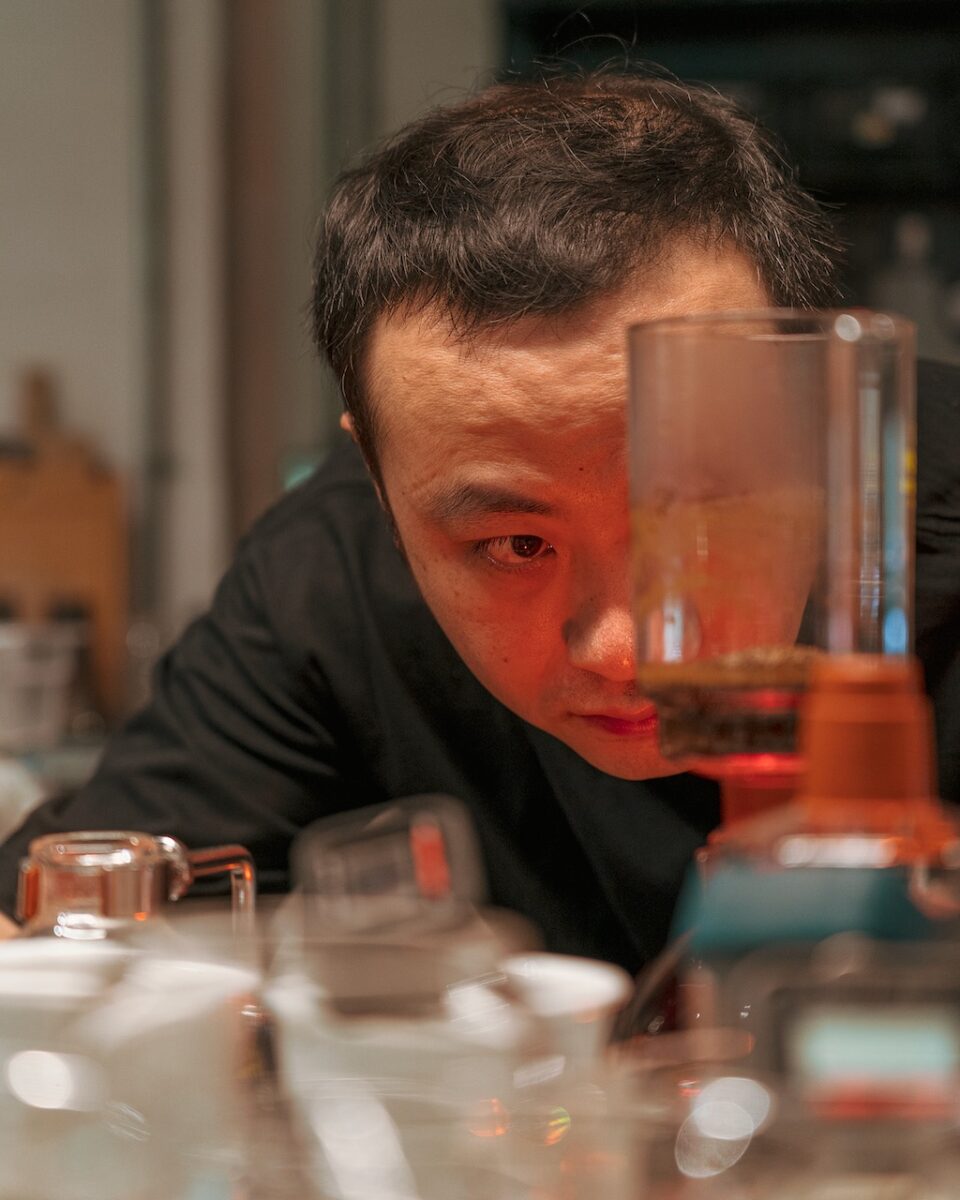
Stanley says a key person in his career is a fellow Taiwanese citizen who taught latte art classes in the United States. Stanley entered three online latte art contests this person organized independently, and took home the top prize in all three. The two became close friends thereafter.
After a while, that person told Stanley that he planned to return to Taiwan to open a coffee academy, and Stanley decided to join him. He worked single-mindedly to fulfill his wishes to learn everything there is to know about coffee, from brewing to espresso to roasting. After winning the trust of that person, Stanley earned a teaching job at the academy.
“Teaching others opened my eyes to the fact that there are logics behind brewing and roasting. With each class I taught, I was able to put the pieces together in my mind. Those rules and principles are so fascinating that the more I learned, the more interested I became.”
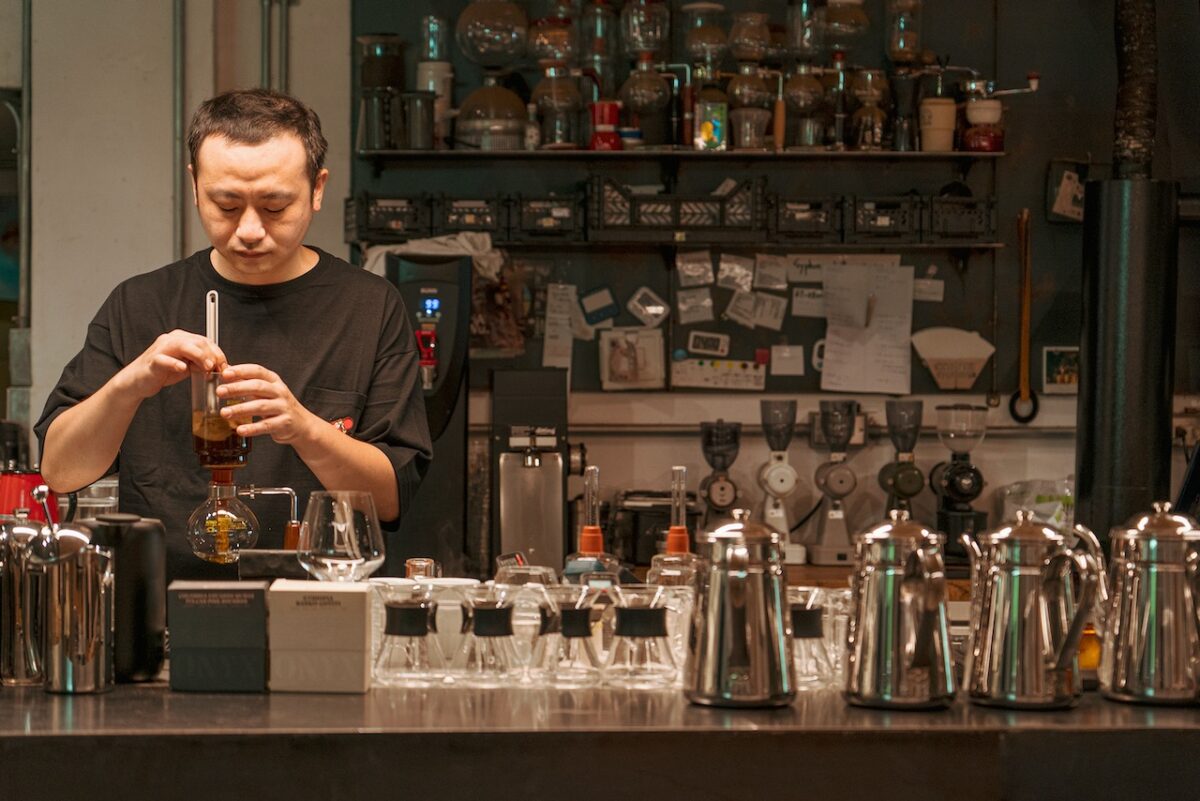
Stanley was hungry for knowledge, eager to absorb everything he could. Driven by the urge, he worked from 7AM to midnight, 6 days a week. For him, nothing was more rewarding than new discoveries and progresses he made as he toiled away.
“Interacting with students with different preferences and varying ideas helped broaden my horizons. I needed to have a detailed understanding of things I taught in order to answer their feedback that I didn’t expect. It’s not about whether you are right or wrong. It’s only about whether certain things suit you or not. You could say this idea is at the foundation of Stopover’s emphasis on giving diverse options.”
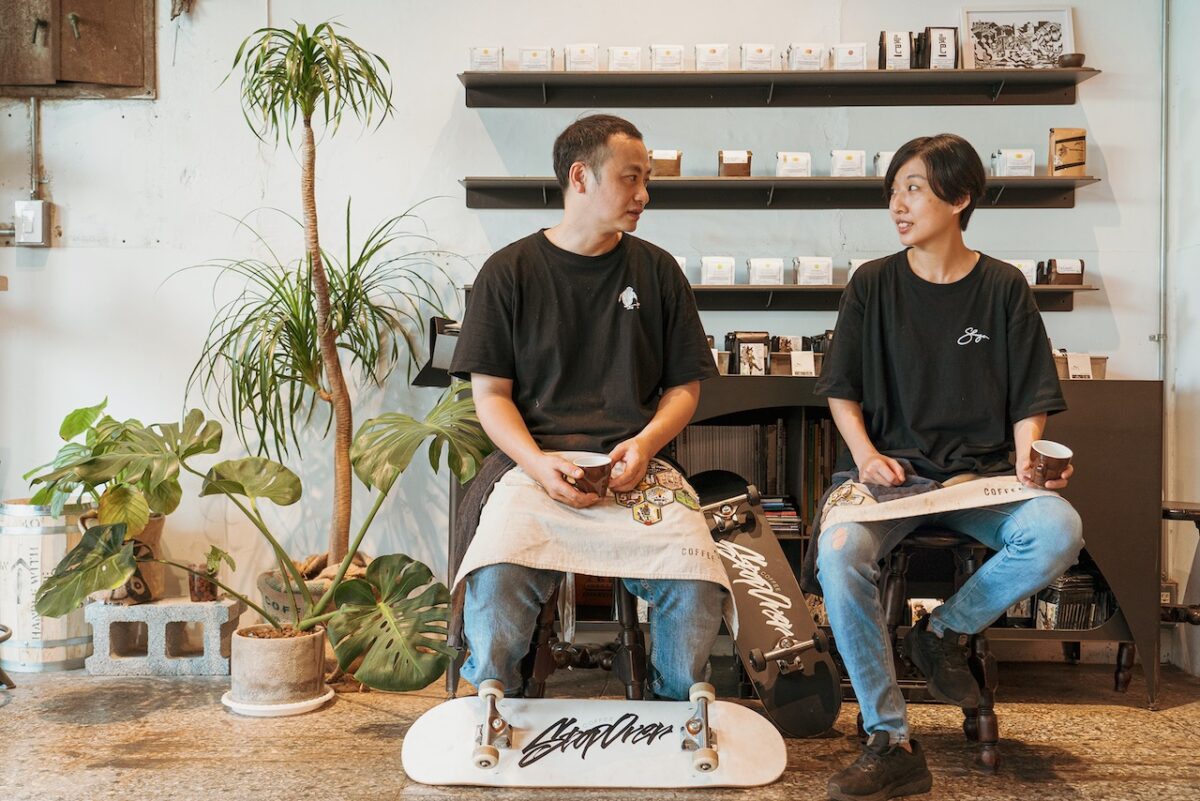
You can learn from teaching others. Stanley knows it firsthand, and he gives his staff the opportunity to teach others, too. Every new employee is assigned a mentor who serves as an instructor and examiner during tests.
“I started to hear the term specialty coffee often around 2010. What ‘specialty’ means is not its unique processing method or flavors, but people’s attitude toward coffee. That goes for green beans sourcing, roasting, brewing, how you serve coffee to customers, the emotions that stir within them when they drink that cup of coffee. The spirit of specialty coffee comes down to whether or not you are courteous toward each of these steps.”

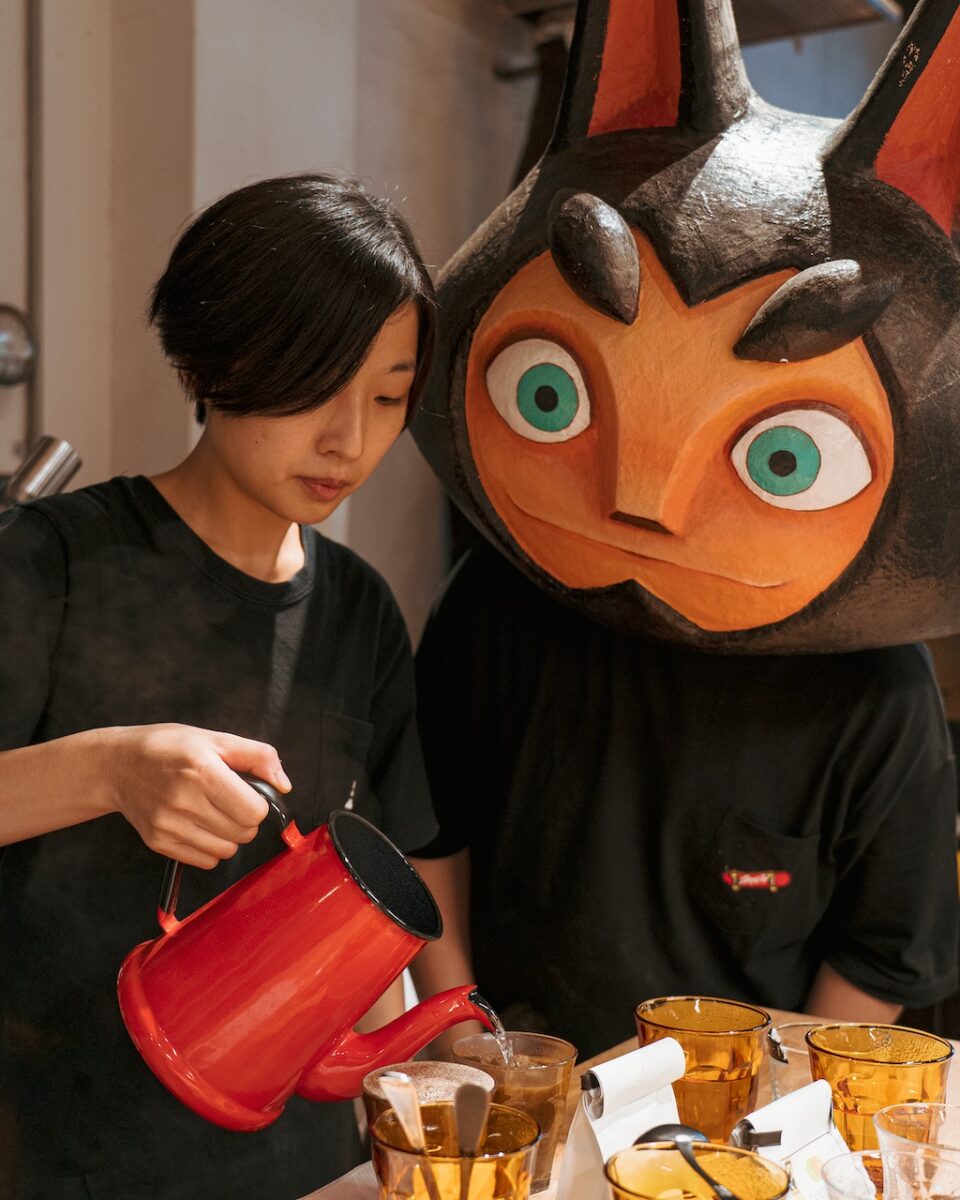
‘Another world’ in familiar place
A few years had passed by as Stanley spent fulfilling days as a teacher at the coffee academy. He was becoming aware of a change in his thinking. He realized that many people didn’t really understand coffee or were unwilling to do so.
“Now that I have my own shops, my coffee students are the general public. But they come to us looking for different things than the students at the academy who came to learn on their own initiative. So there is no need to exude an air of authority. I make it a point to teach them in a simpler way.”
Every now and then, staff members put on mascot costumes and entertain customers like at an amusement park. This shows how eager Stopover is to get close to its customers. Stopover also hosts live concerts by independent bands and sweets-selling events featuring sweets shops. The brand continues to whip up a breath of fresh air to keep customers and themselves interested.
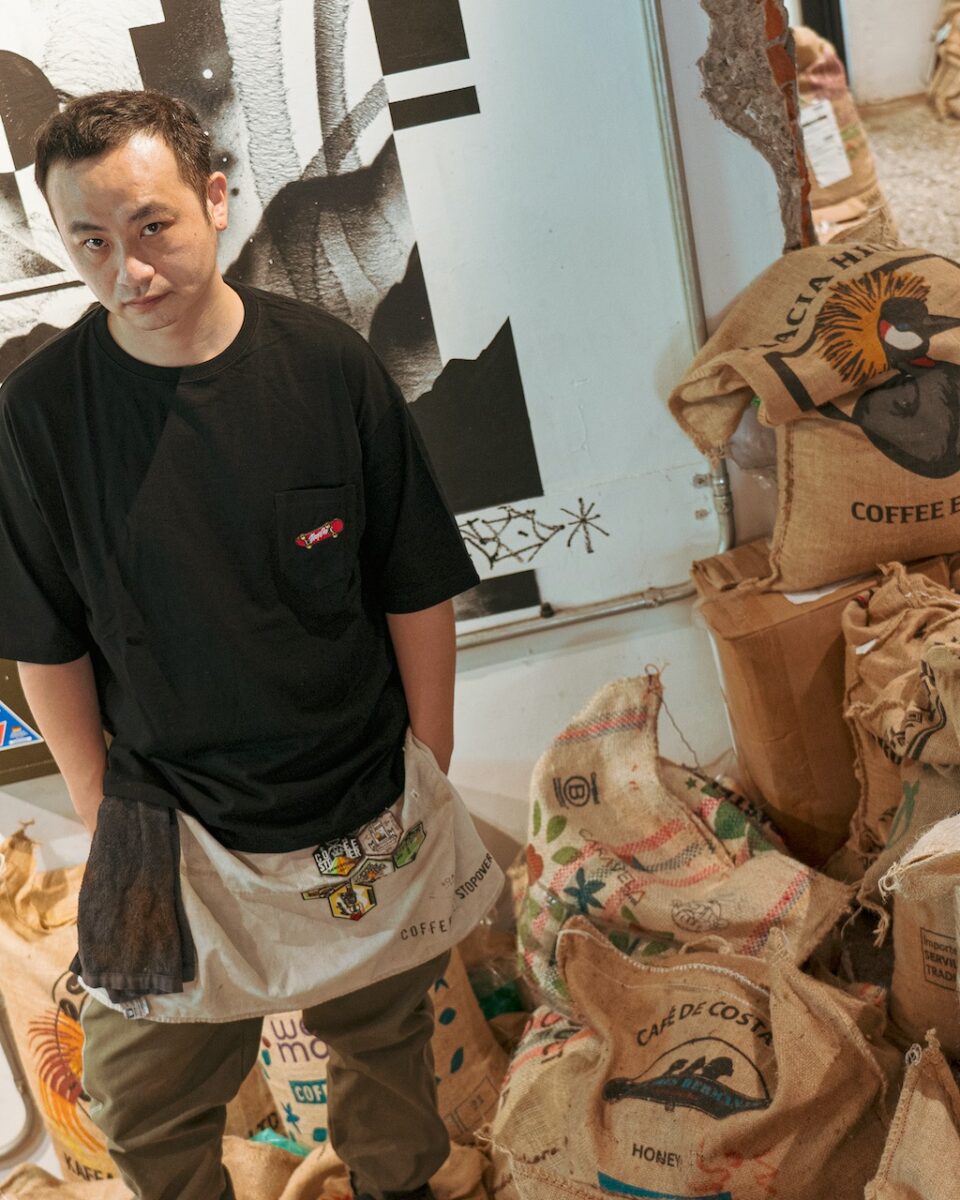
“I like to try various things. When I source green coffee, for instance, I pick a wide range of origins and processing methods. If I come across a kind I’ve never tried, I almost always buy it. I want my customers to enjoy a tour of different tastes by enjoying coffees with unique characters of their own.”
Ever since 18-year-old Stanley gave up a path someone else laid out for him, he has carved out one for himself. For him, the joy of exploring different worlds has never ceased to dazzle.
“For all 7 years since I established Stopover, I’ve always taken on new challenges. So there is no turning point to speak of. It’s boring to stay the same all the time. I want to continue to do something fun.”

MY FAVORITE COFFEE
It brings me happiness when I see someone enjoying a coffee I brew and when people tell me my coffee is delicious.









